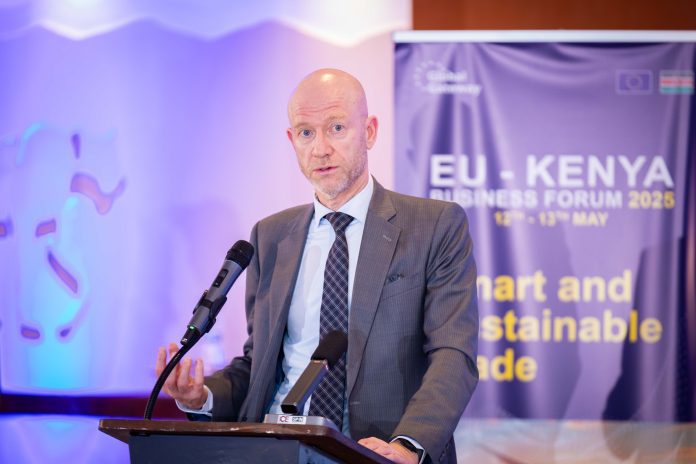Micro, small, and medium-sized enterprises (MSMEs) play a vital role in the global economy and in achieving Sustainable Development Goals.
This is especially evident in Africa, where entrepreneurship is everywhere. These small enterprises create millions of jobs for the continent’s youth.
The biggest challenge for most SMEs in Africa is access to finance. A lot has been said about how financial institutions banks and microfinance organisations should adapt to direct more financial flows to businesses. However, are African businesses also considering alternative financing?
Equity financing is emerging as a viable alternative for SMEs seeking to raise essential capital. Unlike debt financing, equity financing does not require immediate repayment. Instead, it involves opening up ownership of the business to external investors.
This option is particularly appealing for start-ups or high-growth businesses that do not have immediate revenue flows to service loans but require a substantial amount of long-term, patient capital to grow.
One of the most common types of equity financing is through venture capital or private equity funds. In this model, investment firms provide capital in exchange for a share of the business. Often, they also take a board seat and offer strategic advice on expansion plans.
Some of the biggest drawbacks as to why entrepreneurs avoid equity financing is the concern that they will be losing ownership or control of their business. While it is true that ownership is diluted, the decision ultimately rests with the entrepreneur, who must weigh how much equity to offer based on the financial support he/she needs.
These Investors may have a say in the company’s affairs and as well expect returns on their investment, typically in the form of dividends or capital gains if they later opt to sell their stake in the business.
However, the question entrepreneurs should ask themselves is “Do I want to own 100% of something so small or 50%/ 60% of a Sh1 billion business?” If by partnering with venture capital or private equity funds an entrepreneur is able to access a large pool of funds that doesn’t require immediate repayment, and at the same time has access to experienced people (and their networks) who can offer strategic advice on how to grow revenue and profits; expand across borders; assist in acquiring talented staff especially for senior roles; guide a startup on regulatory compliance and how to penetrate or expand market access successfully, why not do so?
How funding from the EIB helped our businesses to break even
One organization facilitating this kind of support to Africa’s SMES is the European Investment Bank (EIB), which, along with other Development Finance Institutions and private investors, channels capital into private equity and venture capital funds. These funds, in turn, invest in startups and business enterprises with potential for exponential growth.
This arrangement provides capital to enterprises that would ordinarily not get traditional financing from banks due to their asset-light nature, thus not having requisite collateral; or too early stage to provide necessary proof of revenue flows or profitability.
Aside from providing financing, the funds provide investment advisory services and knowledge transfer that then goes on to improve the operations of the companies that the funds invest in for increased sustainability.
A good example of how these advisory services is offered is an initiative called Boost Africa, a joint venture between African Development Bank and the European Investment Bank. Launched in 2016, Boost Africa is designed to empower young African entrepreneurs—especially youth and women—by unlocking early-stage financing through venture capital or private equity funds operation in Africa and strengthening technical capacity within Africa’s business ecosystems.
The initiative goes beyond capital infusion, addressing market failures that limit the scalability of startups or early-stage businesses across the continent. As at end of 2024, the program had mobilized over EUR 382 million in new investments, directly supporting more than 1,500 SMEs and helping create over 25,000 direct jobs and over 70,000 indirect jobs.
In Kenya, some of the companies that have benefited from the Boost Africa initiative are Pula- a digital agri-insurance company that is already serving over 3 million farmers in Kenya. Another is Shamba Pride, an agrovet company that has been able to scale exponentially and serve farmers across the country while Poa Internet, which provides affordable internet services to underserved areas has over 400,000 customers using its services. There are many more examples.
Kenya has been the leading destination for start-up capital in Africa for the last 2 years. How much of this capital is transforming local businesses in the country? A question to Kenyan and indeed African entrepreneurs is: are you willing to look beyond bank financing and support from the traditional Family and Friends model to grow your business?









